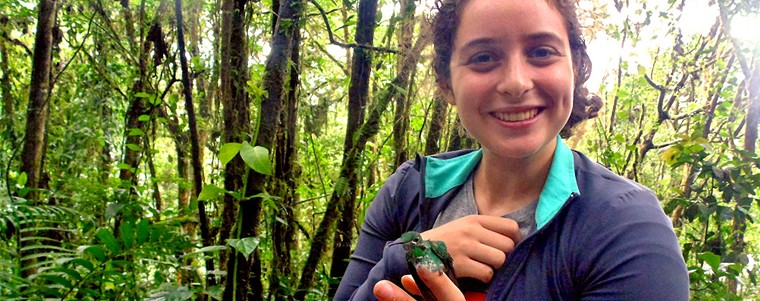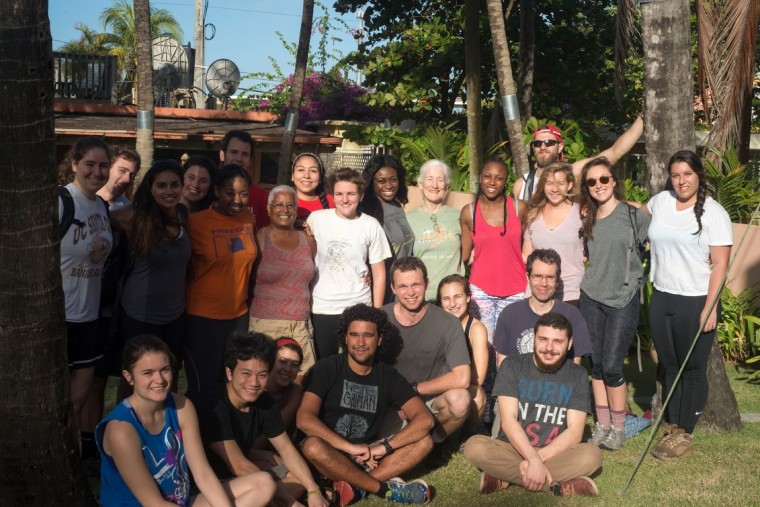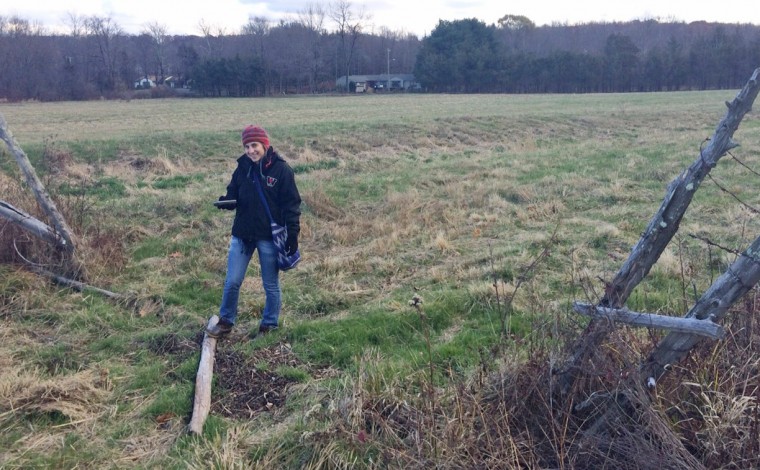Stephen Devoto, professor of neuroscience and behavior; Rosemary Doris, visiting assistant professor of biology; Ph.D. candidate Steffie Windner; and neuroscience and behavior major Chantal Ferguson ’13 are the co-authors of a paper that is the culmination of three years of research. The paper, titled "Tbx6, Mesp-b and Ripply1 Regulate the Onset of Skeletal Myogenesis in Zebrafish" is published in the March 2015 edition of Development, Vol. 142, No. 6, pages 1,159-1,168. The paper is a collaboration between Wesleyan, Kings College London and the National Institute for Medical Research (MRC). Devoto highlights the importance of the paper: The paper identifies three new regulators of muscle development,…
#THISISWHY In this Q&A, we speak with Hannah Steinberg from the Class of 2016. Q: Hannah, you studied abroad through the School for Field Studies’ (SFS) Costa Rica program in Spring 2014. Why did you choose this program and why did you decide to conduct research during your study abroad experience? A: I chose SFS Costa Rica because I wanted to go to Latin America to improve my Spanish skills and get practical hands-on experience in biological science. Another cool part of the program was that it was situated on a sustainable orange and mango farm in central Costa Rica,…
This semester, 21 senior earth and environmental science majors in the Senior Field Research Project (EES 398) course traveled to Puerto Rico to develop their research, data collection, analytical and presentation skills. As part of the EES Department's capstone course sequence, students are required to participate in a series of student-designed research projects. From Jan. 12-19, students performed independent research in the field. "The overarching spirit is to have students participate in the full arc of a research project: from the design all the way to the presentation of the results," said Dana Royer, associate professor of earth and environmental sciences, associate professor…
Five groups of students enrolled in the Geographical Information Systems (GIS) Service Learning Laboratory course E&ES 324 presented their semester-long research Dec. 1 in Exley Science Center. Fellow students, faculty, staff, community members and community partners attended the presentations.
When Anna Haensch tells new acquaintances that she’s a mathematician, many people immediately recoil. “There’s this repellent nature to math,” she said. “There’s this big wall up around it—people find it terrifying or uninteresting.” That’s exactly why Haensch, a Ph.D. student who just successfully defended her dissertation, wants to learn how to communicate better to the general public about math. She is the recipient of a Mass Media Fellowship, administered by the American Association for the Advancement of Science (AAAS). Haensch's fellowship is sponsored by the American Mathematical Society (AMS). The 10-week summer program, which starts June 3, places graduate and post-graduate…
Seven Wesleyan undergraduates presented research at the annual Keck Northeast Astronomy Consortium meeting held at Middlebury College on Sept. 22. Pictured above, from left, are: Eric Edelman '13, astronomy major, who worked with Professor Jay Pasachoff at Williams College; Miche Aaron '14, earth and environmental studies major, who worked with Associate Professor Martha Gilmore of Wesleyan; Mark Popinchalk '13, astronomy major, who worked with Professor Debra Elmegreen of Vassar College; James Dottin '13, earth and environmental studies major, who worked with Research Associate Professor James Greenwood of Wesleyan; Ben Tweed '13, astronomy major, who worked with Assistant Professor Seth Redfield of Wesleyan; Kerry Klemmer…
By looking at high-resolution images captured by the Mars Reconnaissance Orbiter, scientists are able to see gullies, which are argued to be geologically recent. Because they are most likely formed by water, it is believed that they can answer the question of whether or not there is still "active" water on Mars. As a summer Wesleyan McNair scholar, astronomy major Lavontria Aaron '14 used a hyperspectral instrument to determine if the gullies contained minerals (salts) which would be left behind by water brines. "By examining the spectrum of the brines, we'll be able to learn more about Mars' history and…
Students majoring in earth and environmental sciences, biology, molecular biology and biochemistry, chemistry, physics, psychology, environmental health, safety and sustainability presented their summer-long research projects during the Wesleyan Summer Research Poster Session Aug. 2 in Exley Science Center. Quantitative Analysis Center summer fellows, Hughes fellows, and McNair scholars also presented their research. Photos of the event are below (Photos by Olivia Drake):
Last summer, Elsa Hardy '14 worked for a youth enrichment program in New York City. Several of the children came from the Frederick Douglass Academy, a middle school in Harlem where 75 percent of the students are black. "I asked the students who went there, 'Do you know who Frederick Douglass was?' None of them did. They had no idea," Hardy recalls. "I was shocked to learn that the students didn't know who the namesake of their school was." Hardy, who is majoring in African American studies and Hispanic literatures and cultures, became curious as to why the average middle…
Fifteen Wesleyan students presented posters on their research in the sciences and mathematics at the seventh annual “Celebration of Science Theses” event held April 19. “You help keep our sciences here vibrant and alive,” Ishita Mukerji, dean of natural sciences and mathematics, professor of molecular biology and biochemistry, tells the students gathered in the lobby of Exley Science Center as she congratulates them. Mukerji says she hopes that after pausing to celebrate their achievements, the students will continue to pursue research for many years to come. The work presented by seniors and BA/MA students spans a wide range of disciplines.…




